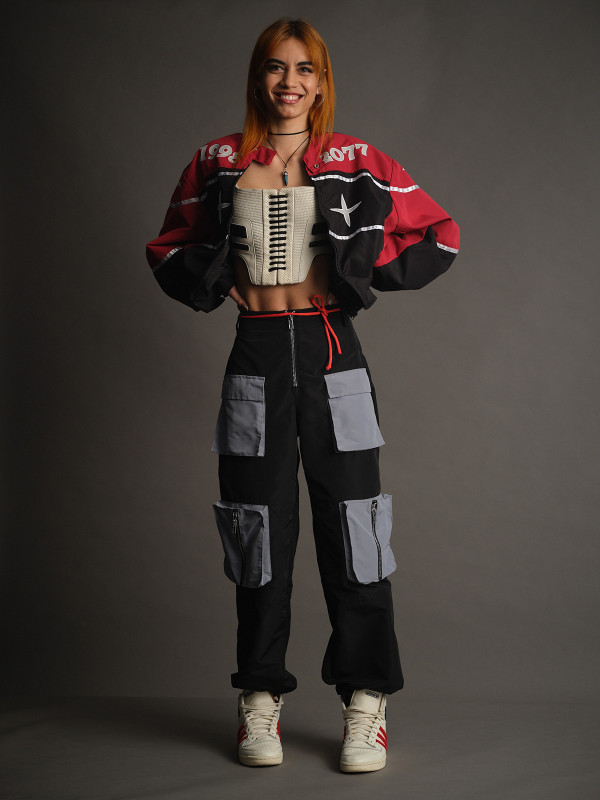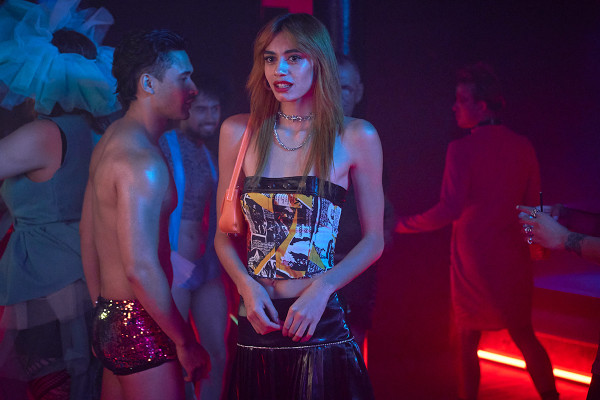20-year-old Paipera Hayes went into foster care at nine years old, and she’s been through over 10 foster homes growing up. Now, she stars as Dana in TVNZ’s new series Testify, which launches April 8 on TVNZ 2 and TVNZ+.
It’s about a young pastor who discovers some dark secrets in his family church, and he leans on a queer podcaster, played by Paipera, and her flatmates for support.
Re: News spoke to Paipera Hayes about growing up in foster care, being Māori and transgender and how it feels to be a trans woman playing the lead actress role in a New Zealand series.

Paipera Hayes. Photo: supplied.
Describe to me how it feels to be a trans woman playing the lead actress role in a New Zealand series.
It’s pretty mind-blowing, I mean as a little kid I really just saw myself exactly as my mum, you know, the same body shape, hair length, smile, essentially being a woman. It's definitely been a journey.
I feel like I can set an example that we as trans people can show something to the world too and we have a story to tell.
What was it like growing up as a trans Māori girl in foster care?
I first went into foster care at around nine years old, it was definitely weird. Being trans and being Māori both came with their different hardships but combined was even harder.
It definitely made me love myself a lot more because I had to be there for myself.
It also made me really appreciate who I surrounded myself with.
Sometimes school was my only out. And when I went to those people and saw them every day, I knew they could bring me that joy and treat me how I wanted to be treated and make me feel how I wanted to feel without those walls around me and those pressures around me.
I feel like as Māori it's not new to us, the whole gender thing.
How did going through the system shape you into the person you are today?
I went through the foster care system really young, I went from house to house to house to house to house really often. I don't know why they didn't work. I mean, it could be because I felt insecure as a little kid being compared to the birth children of my foster parents so I would play up.
I faced a lot of downhill parts and it definitely brought my higher self even higher.
I raised my vibration to a point where the little things couldn't affect me anymore.
It definitely made me find myself, it definitely made me really appreciate who I am today.
I tried so hard to not be the person that I am today. I didn't want to be Māori. I didn't want to be a woman, I didn't want to feel the way that I felt.
Don’t get me wrong - I wanted to be a woman, but I just didn't want it to be complicated. And for a lot of people, it wasn't complicated.
Once I joined kapa haka at my high school, I started to learn about my culture. Because of course, a lot of the foster families were not Māori. Every family I was with had a white way of living.

Paipera Hayes. Photo: supplied.
How do you think other trans people will feel watching you take on such a big role?
I actually had someone really close to me tell me that when she was a little boy, if she had seen me on TV, she would have had the confidence to be who she was today a lot earlier.
Every time I think about it, I get goosebumps. It really makes me proud.
Have you had to overcome any discrimination in your life?
Definitely, but I haven't seen a lot of it. I choose to be oblivious. Like if it's happening, I'd rather it happened behind my back instead of to my face.
If I don't know about it then I'm happy.
I definitely feel like there were a lot of backhanded compliments, like, “Oh you can't do this now because you're a girl”, and “Stop acting that way. You're a girl now”, when in reality, women can be masculine.
As a kid if you were to see a trans person in a role like yours how would that have made you feel?
I used to be really obsessed with the Supergirl series. One of the superheroes was actually transgender. And I saw her, and I thought, wow, she's so pretty.
And then the show discovered that she was trans. And I thought, wow, she's just like me, and I'm not alone.
It really showed me that we're meant to be here. We're not meant to be suppressed. We're not supposed to fight these feelings we have inside just because others don't like them.
Update: We changed the headline of this article to remove the emphasis on the "first" trans actress wording, as we don't want to accidentally diminish the incredible work of other trans actresses.
More stories:
Instagram is limiting what political content you see
Here’s how you can turn the setting off
Why I wear both moko kauae and malu
“I can have my legs done and still be Māori, I can have my face done and still be Samoan”
Why there's no such thing as being 'a quarter Māori'
"You are Māori if you have an ancestor who is Māori."